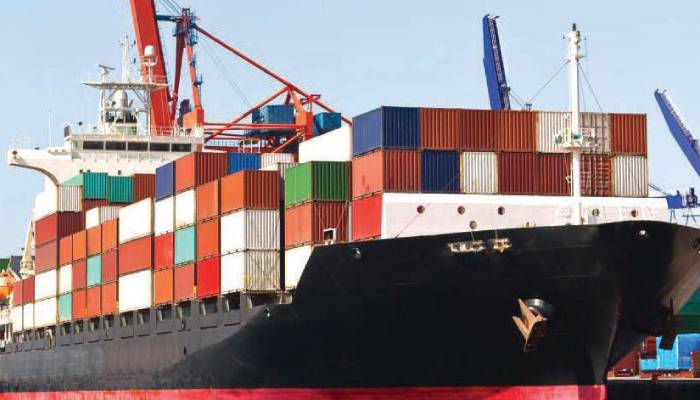
or

Any maritime disputes during the course of maritime trade can be settled by the Courts of laws having jurisdiction over the disputes in absence of contract of arbitrations or by way of arbitration. All constituents of the Maritime trade have consensus that arbitration provides effective and fast remedy than conventional courts and therefore almost all contracts contain either arbitration clause or separate arbitration contract.
Arbitration is a consensual system of judicature directed to the resolution of commercial disputes in private which leads to a final and binding determination of the parties’ rights and obligations. The Arbitrator is described as a disinterested person, to whose judgment and decision matters in dispute are referred.
It is the most commonly used method of Alternative dispute resolution (ADR) and a foundation for almost every arbitration agreement. The maritime dispute includes but not limited to counterparty issues, cargo interest, accidents, bills of lading, insurance claims, personal injury claims, salvage agreements, payment claims, quality and time issues etc.
An arbitration clause is a clause in a contract that requires the parties to resolve their disputes through arbitration process. It binds the parties to a type of resolution outside of the courts upon their failure to settle disputes amicably/ neutrally and also by which parties to dispute agrees to set neutral and appropriate procedural rules, set realistic timetables, select technical expert and neutral decision makers.
Because of neutral decision makers, parties to arbitration are prohibited from misconduct and do not create any opportunities to escape from liability. Judicial interference may create an incentive for dilatory tactics and expensive, confusing procedural disputes, loss of valuable time and human resource.
Most of the states have enacted arbitration legislation that provides for the enforcement of international arbitration agreements and awards that limits powers of courts to interfere in the arbitration process. The UNCITRAL model law on International Commercial Arbitration is leading example.
Most contract arbitration occurs because the parties included an arbitration clause requiring them to arbitrate any disputes “arising under or related to” the contract. If a provision like this isn’t included in the contract, the parties can still arbitrate if they both agree to it. Arbitrators do not act as state judges or government agents, but are private persons ordinarily selected by parties. Award made is binding in nature and enforceable in national courts. An award of arbitration may be confirmed in a court of competent jurisdiction. Any award as a result of any such arbitration proceeding shall be in writing and shall provide an explanation for all conclusions of law and fact and shall include the assessment of costs, expenses, and reasonable attorneys’ fees. The arbitration proceedings themselves are also subject to legal rules. The law governing arbitral proceedings is variously referred as procedural law of arbitration. Same deals with:
Arbitration agreement includes choice of law clause which plays an important role in international commercial arbitration. Following four issues on choice of law have vital influence where, each of them can be governed by different. national laws than that to the underlying contract:-
International arbitration by which international disputes can be definitively resolved, pursuant to the parties’ agreement by independent, nongovernmental decision makers. Validity and enforceability of international arbitration awards which includes, international arbitration conventions and national arbitration conventions which occurs within a complex legal framework. One of the leading international commercial arbitration institutions is International Court of Arbitration (ICA) which was established in Paris in 1923. The Jurisprudence of ICA offers the ideal solution for resolving maritime disputes through experienced maritime professional acting as arbitrations. The Arbitration Act, 1940/ 1996 is applicable for jurisdiction of India.
Like other system, arbitration is also have some disadvantage which are as follows;
The Maritime arbitration is the only speedy alternate dispute solution for resolving complex and multiple disputes within budgeted cost and time. Therefore, the parties can choose any of the adhoc or institutional arbitration in the agreement in order to avoid any kind of informal conduct in the arbitration proceedings.
Pradeep K Jain is the Managing Partner at Singhania & Co., Mumbai Office, and an expert in Maritime and Corporate Law.
Nalini Mishra - Senior Associate

Lex Witness Bureau

Lex Witness Bureau

For over 10 years, since its inception in 2009 as a monthly, Lex Witness has become India’s most credible platform for the legal luminaries to opine, comment and share their views. more...
Connect Us:


The Grand Masters - A Corporate Counsel Legal Best Practices Summit Series
www.grandmasters.in | 8 Years & Counting
The Real Estate & Construction Legal Summit
www.rcls.in | 8 Years & Counting
The Information Technology Legal Summit
www.itlegalsummit.com | 8 Years & Counting
The Banking & Finance Legal Summit
www.bfls.in | 8 Years & Counting
The Media, Advertising and Entertainment Legal Summit
www.maels.in | 8 Years & Counting
The Pharma Legal & Compliance Summit
www.plcs.co.in | 8 Years & Counting
We at Lex Witness strategically assist firms in reaching out to the relevant audience sets through various knowledge sharing initiatives. Here are some more info decks for you to know us better.
Copyright © 2020 Lex Witness - India's 1st Magazine on Legal & Corporate Affairs Rights of Admission Reserved